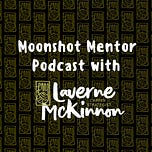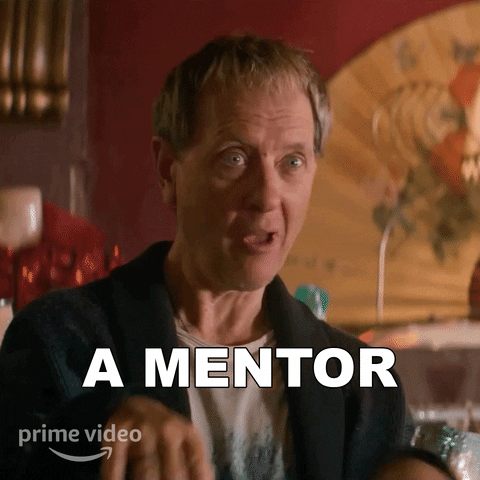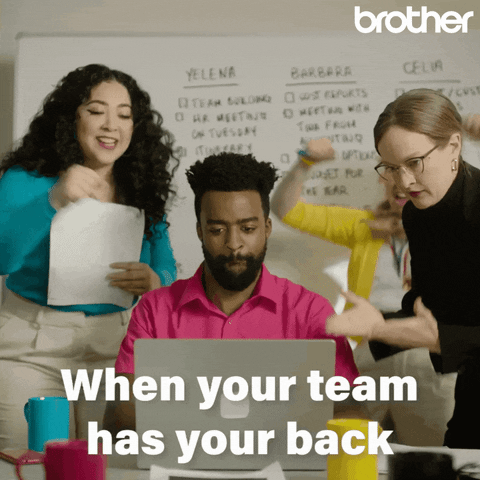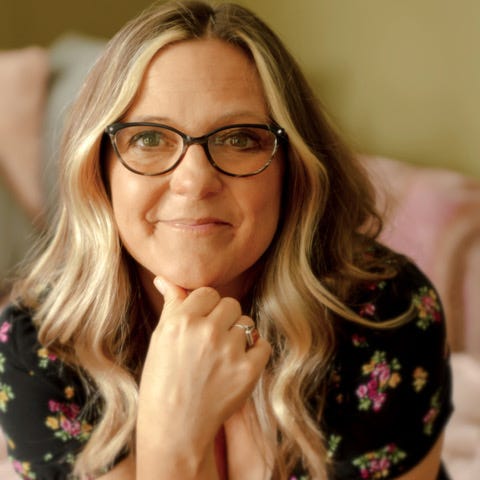One of the questions that comes to me most frequently from subscribers is “How do I find a mentor?” I think the real question is “What is no one telling me about finding a mentor?” There’s a lot of research out there about how important it is to one’s career to have a mentor in place, but why is it so difficult to land one?
When I googled the “how do I find a mentor” question, there were a myriad of articles and essays from LinkedIn to Indeed to NPR to Harvard Business Review … it’s endless and honestly many of their suggestions are a bit polly-anna and don’t reflect the real world. So here are some hard truths.
The first thing that needs to be understood is the distinction between a mentor and an advocate.
A great mentor will:
Provide perspective you don’t have and can’t get anywhere else.
Give you honest and straight-forward feedback that aligns with your goals (not theirs.)
The best mentors will stay engaged in your journey and also be detached from any advice or feedback they give. They empower you to make the best choice for yourself.
Ask great questions to help you gain deeper understanding and clarity about what’s important to you.
Bring to light what you might not be seeing or considering.
A great advocate will:
Make calls on your behalf to put you up for a job.
Recommend your for a role you’ve already applied for.
Let you know about opportunities that might not be on your radar.
Get feedback on how you did in the interview and what steps you might need to take in order to secure the offer.
Engage with a mentor if:
You need insights from a 30,000 foot perspective on your career .
You need front-line advice on current challenges in your job and occupation.
Engage with an advocate if:
You need support in finding and landing a new job.
One of the primary reasons people don’t have a mentor is because they are treating the mentor like an advocate. Wires are getting crossed and the relationship fizzles.
Once you have clarity on whether you need a mentor or an advocate, it’s critical to dispel mistaken beliefs that may be stopping you from finding the right mentor match.
A mentor does not need to be older, more senior, or more established than you. Don’t let your ego get in your way. A great mentor simply needs to be willing to support you with hard truths and wisdom.
A mentor relationship is not always defined clearly and consciously. I have found that the best mentor-mentee relationships are developed over a period of time and frequently don’t begin with a formal ask of “Will you be my mentor?” Recognize that you may actually have a mentor without even naming it.
Never pay for a mentor. That’s sorta crazy thinking. I have a business coach who serves as my mentor and I’m truly happy to pay her for her invaluable time, expertise and wisdom. I also pay a mentor to give me feedback on my brand. I also pay a mentor to give me perspective on my social media strategy - and he’s a good twenty years younger than me although I’ve never asked his age.
If you’re able to find a mentor who will give you their time for free, that’s truly awesome. But don’t let your pocketbook stop you from getting what you need.
You must follow your mentor’s lead with scheduling and expectations. So not true. It’s actually the mentee’s job to drive the mentorship and articulate expectations for both sides. You are the one who makes the relationship a priority.
Use the tool of “Design an Alliance.” This is a conversation about the expectations each person has for the relationship. For example, you may say, “I would love it if we could meet once every month for 15 minutes.” Your mentor might say, “Let’s do it over zoom and send me your questions ahead of time.”
Find a mentor inside of the company or industry you are working. The problem with that belief is that it limits perspective. A fresh POV or questions from someone who doesn’t know your field can be illuminating. Sometimes people get stuck in “that’s how it’s always done” which slows and stops growth.
Mentorship is a longer commitment - at least a year - in order to have real results. The truth is that you could have a single conversation with a mentor that will be life changing – and never see them again. Stay open to all different mentorship opportunities whether it’s age, industry, time.
One of the old-school pieces of advice that you have to let go of when finding a mentor is sending an email asking if someone will mentor you. It’s honestly a little cringe-y and has a feeling of entitlement. You have to build a relationship first. If there’s someone you know that you’d love to cultivate, that’s when you send the email. Ask the person of interest if they have 15 minutes to answer a few questions. Then outline what the questions are. When you are specific with what you are looking for they can determine if it’s a good use of everyone’s time.
Pro-tips:
Keep your email brief and to the point.
Don’t cold email. Find someone who will give you an introduction.
Once you begin to cultivate the relationship with the mentor, be sure to follow these Don’ts:
Never ask your mentor questions when you can google the answers or find them from a friend or colleague.
Never expect your (potential) mentor to follow-up or remember what you spoke about. It’s your job to set the agenda and send it ahead of time.
It’s not cool to ask your mentor for a job or a referral. It puts pressure on the mentor in ways that may slow or stop them from being straight-forward and supportive in other ways. If you want someone to help you land a new gig, that would be an advocate, colleague, friend or recruiter.
If you’re fortunate to have a relationship with a mentor you don’t pay, follow these Non-Paid Mentor Musts:
Watch the clock and be respectful. Don't give them the responsibility of saying, “I have to go.”
Take notes. It shows you respect their feedback.
Send a thank you note . Yup, after every meeting. You can keep it brief, but acknowledging their time and insights cultivates the relationship.
Send an update between meetings on what has happened based on their questions and feedback. Mentors like to know how their time investment is panning out. Remember to keep it brief.
Listen to what’s important to your mentor and offer support. For example, one of my mentees will send links to articles that she thinks will interest me.
Maintenance of the relationship is your job, not theirs. So you need to schedule time and follow-up on action items.
Don’t ghost!! It sours people on mentoring in the future. If for some reason you want to end the mentorship or become too busy, be classy and let them know what’s going on.
While you’re in the stage of cultivating a mentor, consider being your own mentor in the form of identifying people you admire and “channeling” them. This is a tool I learned from my training as a coach. We called it creating “crew members.” One of my crew is a guy named Aaron who used to be an agent and is now a wildly successful producer. Whenever I’m in a sticky sales situation, I ask myself what would Aaron do?
Here’s a super fun Inc. piece from Jessica Stillman entitled Can’t Find a Mentor? Try this Instead on the same topic.
A quick preview of what’s coming up: the next several blogs will continue to focus on this idea of creating “your team.” Your mentors and advocates are a part of that. As much as we might want or think we can go it alone, it’s just not possible. We need others in different ways. So it’s important to look at the people in your “inner circle” to determine if they are truly the right match for you. And if you don’t have an inner circle, the next series of posts will help you figure out how to create one.
In looking at your team, who are your current advocates? Who is your mentor? If the answer is no one, start generating a list of possibilities and cultivate those relationships following the steps above.
P.S. If you’re a writer feeling a bit stuck, see below for a recommendation to Holly Payberg-Torroija. She’s a mentor to writers and offers free stuff and paid stuff!
🙌🏾 Questions? Want to work with me? I offer private coaching sessions as well as in-person and virtual group work.
Reach out directly here to set up a complimentary consultation.
I love to support ambitious, driven people who are feeling stuck and want to regain momentum so they can hit their next big goal. Want to explore working together?
MOONSHOT REFERRAL:
Do you have a story you know you need to write, but have no idea how to get started?
Join Holly Payberg-Torroija on August 12th for a free virtual writing workshop where she’ll share writing prompts designed to get you on the track fast, while also sharing new opportunities for ways you can be supported all year (no matter your budget or time constraints). Learn the basics of getting started and get the kick start you need.
Holly’s mission in life is nothing less than to be the change she wishes to see in the world when it comes to the kind of support creatives deserve. As a writing coach, her focus is on the writer themselves, not the stories they write. Everyone has great stories within them that need to be honored. It’s the getting them out that is the challenge. So Holly goes straight to the source, empowering writers to reconnect with themselves and their creativity in a profound way, so they can get back to flow and write those stories they were born to write.
Click on this link to find out more and grab your spot.
P.S. For full transparency, I don’t get an affiliate fee if you work with Holly. We just respect each other’s work so are cross-promoting.
If you’re resonating with what you’re reading, please consider subscribing. What’s that mean?
🙌🏾 You’ll receive regular emails (with lots of heart and a bit of humor) that share a tool or insight from my coaching practice.
🙌🏾 Typically the blog and podcast will have a question at the end to provoke thought that supports you in your growth.
🙌🏾 Updates on offerings, free stuff, recommendations, referrals.


















